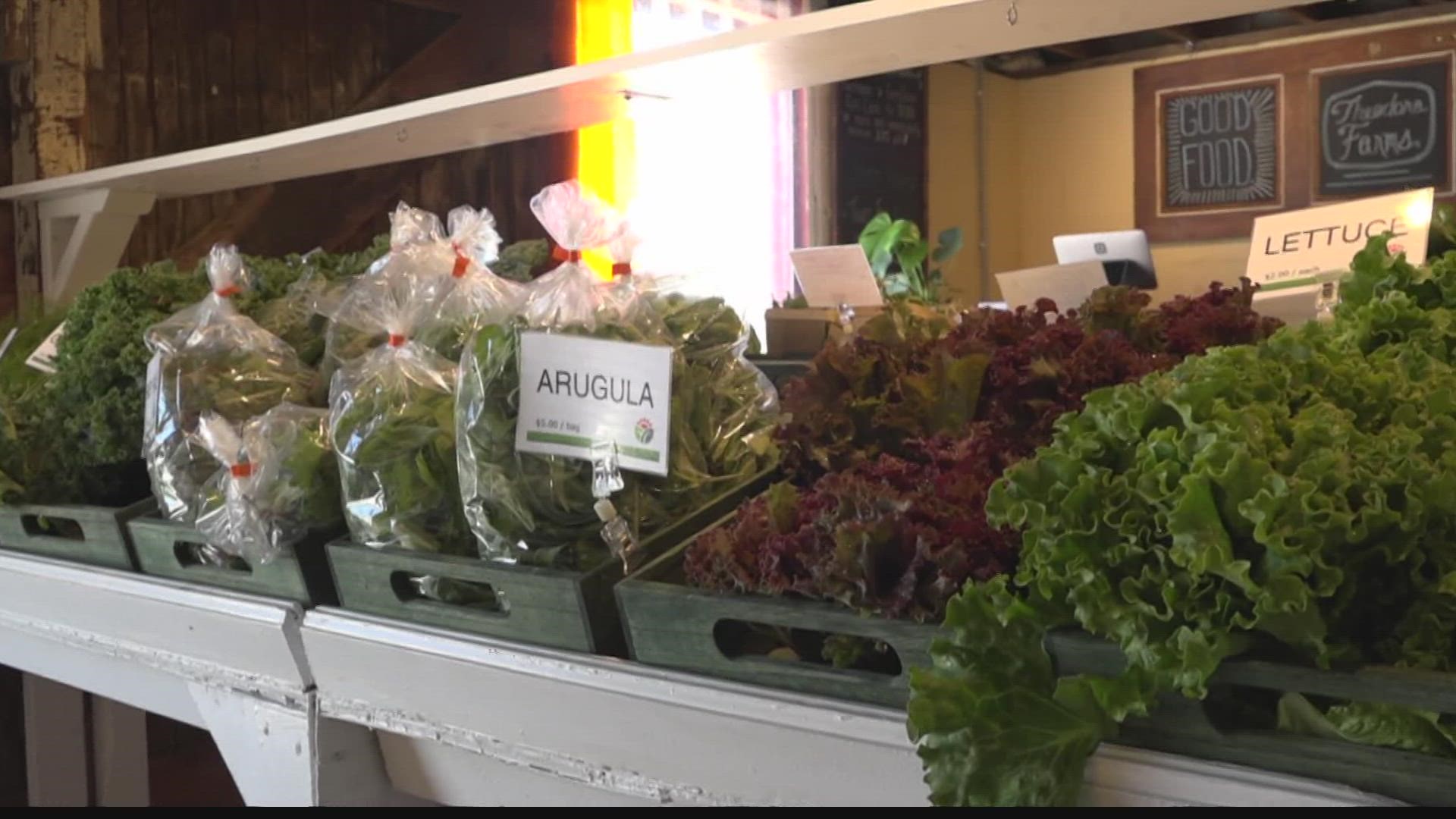ST. LOUIS — Farmers are feeling the heat.
The recent lack of rain and soaring temperatures could impact crops.
Theodora Farms in Godfrey is fresh to the game. Its organic vegetable 10-acre farm is in year three and it's trying to stay afloat, even if the heat and dryness can be drowning farmers.
"The heat is definitely affecting our crops," said Megan Tyminski, assistant farm manager.
Some of the farm's lettuce is getting stressed, too.
"Our lettuce mix for example, we just went to harvest some yesterday morning and we were tasting varieties in the custom blend and we weren't really happy with the flavor and we didn't want to put it out there and have our customers tasting it," said Tyminski.
She said the high temps can add to the flavor because cooler temperatures create more of a sweet taste. So, they didn't sell those products.
Plus, the greenhouses on-site are overheating, boiling up to more than 100 degrees inside.
"We're even sowing all of our flats for the greenhouse this week and putting them in the basement to germinate and then bring them back to the greenhouse because it's too hot out there," she explained. "It was planted out in 70-degree weather and last week was 100s, so we tried to mitigate that with summer lettuce production and shade cloth and things like that."
Eckert's Farms have been in the business for quite some time and still brace for the heat's impact.
"The smaller vegetable plants are going to show stress first. So we are stepping up irrigation measures," said Chris Eckert, president of Eckert's Farms.
He notes, that mature peach and apple trees are more resilient.
He did add that the heat isn't all bad.
"Peaches love it dry and tomatoes love hot and dry, as long as they are irrigated," Eckert adds.
For the other crops, he said irrigation will increase by adding more hours to the cycle.
In Columbia, Illinois, the same problems are brewing at Stumpy's Spirits Distillery.
It's a single-source distillery on about 10 acres of its 8th-generation family farm.
"Being a single source, we grow all of our own grains," said Adam Stumpf, owner.
On its grounds, it has wheat, barley, along with red, yellow, and white corn.
"We're definitely worried about the corn, being a distillery it's the base of all of our products. So legally bourbon has to be 51% corn and our vodka and gin are all based on corn as well. Some of the early corn right now is getting to a really important part in its life stage and rain is required," Stumpf said.
Stumpf shared, that they don't have an irrigation system, so the rain is crucial.
He also worries about soybeans.
"Soybeans also play an important role. While we don’t make products out of soybeans, they play a vital role in crop rotation and soil management and making sure that we’re taking care of the soil on those off years," Stumpf explained.
Stumpf echoed the same message as Eckert, that the heat can be great for some items.
"This time of year is good for the wheat and rye and barley because they can dry in the field. Drying out and taking advantage of mother nature of having it dry out for us rather than drying it mechanically," Stumpf added.
For now, they are okay with the surplus of corn produced last year.
However, he shares, that if too much damage is done, major crop injury could impact consumers.
"Come fall, whenever those crops mature and are ready to go to market - if there's significant impact from weather, that can impact price and that trickles down to higher prices seen on store shelves. Not just in booze but all kinds of consumer goods," Stumpf said.

